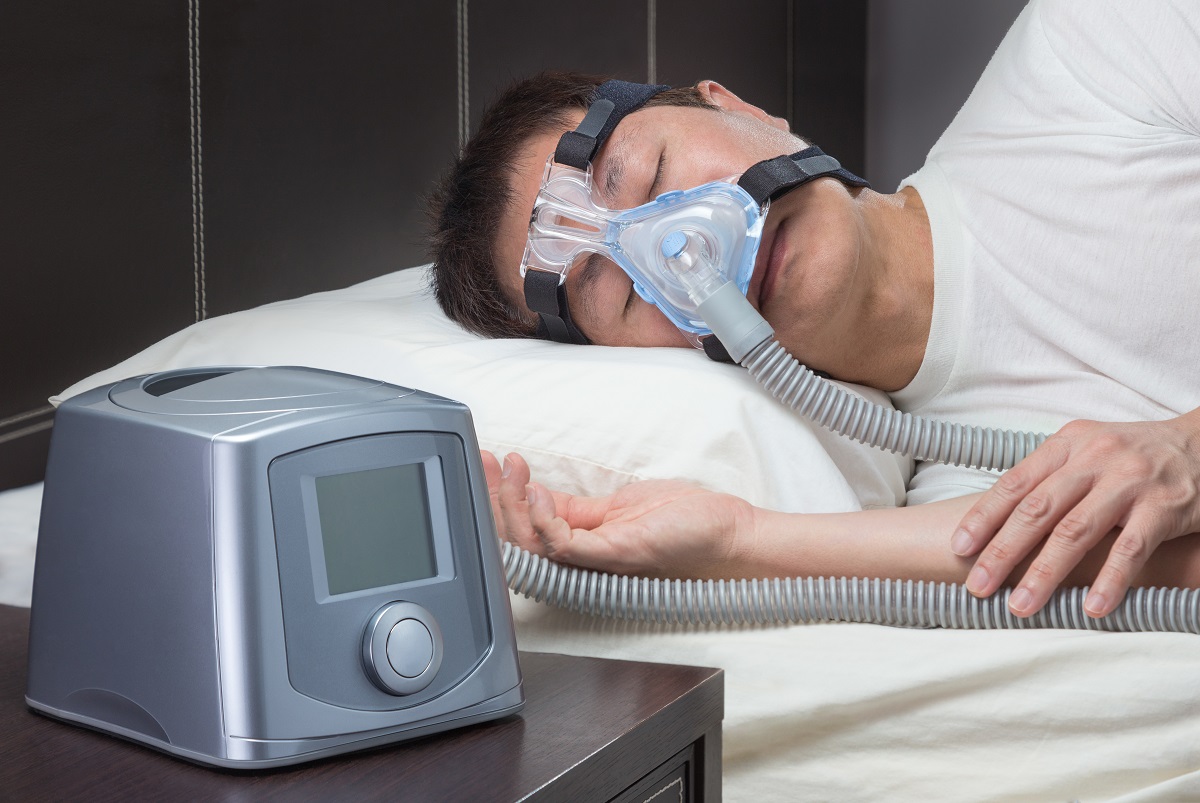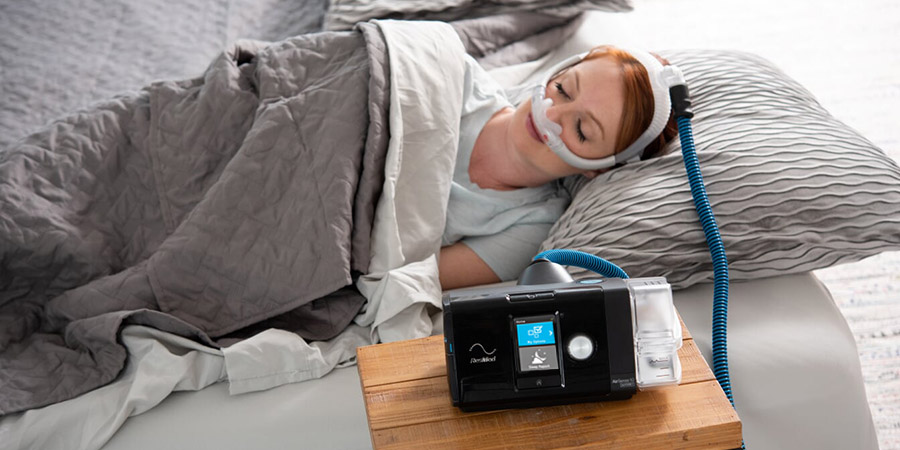Understanding the Need for a CPAP Machine

How to get a cpap machine without insurance – CPAP (Continuous Positive Airway Pressure) therapy is a highly effective treatment for obstructive sleep apnea (OSA), a common sleep disorder characterized by repeated pauses in breathing during sleep. The air pressure delivered by a CPAP machine keeps the airway open, preventing the pauses in breathing and improving sleep quality.
Importance of CPAP Therapy for Sleep Apnea
CPAP therapy is the gold standard treatment for OSA, significantly improving symptoms and reducing the risk of associated health complications. The constant air pressure delivered by the CPAP machine helps maintain an open airway throughout the night, preventing the pauses in breathing that characterize OSA.
This continuous airflow prevents the airway from collapsing during sleep, ensuring consistent oxygen intake and uninterrupted sleep.
Potential Consequences of Untreated Sleep Apnea
Untreated sleep apnea can have serious consequences for your health, impacting various aspects of your well-being. The lack of oxygen during sleep can lead to several health problems, including:
- Increased risk of cardiovascular diseases:Sleep apnea is a major risk factor for high blood pressure, heart attacks, strokes, and heart failure. The repeated oxygen deprivation during sleep can strain the heart, increasing the risk of these serious conditions.
- Cognitive impairment:Sleep apnea can affect brain function, leading to daytime sleepiness, difficulty concentrating, and memory problems. The lack of restorative sleep can impair cognitive performance and reduce overall alertness.
- Mood disorders:Untreated sleep apnea is associated with an increased risk of depression, anxiety, and irritability. The lack of quality sleep can disrupt the body’s natural sleep-wake cycle, affecting mood regulation and overall well-being.
- Increased risk of accidents:Daytime sleepiness caused by sleep apnea can increase the risk of accidents, particularly while driving or operating machinery. The lack of alertness and impaired cognitive function can significantly increase the likelihood of accidents.
Benefits of Using a CPAP Machine
Using a CPAP machine can significantly improve your quality of life and reduce the risk of associated health complications. The benefits of CPAP therapy include:
- Improved sleep quality:By preventing pauses in breathing, CPAP therapy allows for uninterrupted sleep, leading to improved sleep quality and reduced daytime sleepiness.
- Reduced risk of cardiovascular diseases:CPAP therapy can help lower blood pressure and reduce the risk of heart attacks, strokes, and heart failure. The consistent oxygen intake provided by the machine reduces the strain on the heart, minimizing the risk of these serious conditions.
- Improved cognitive function:By ensuring a good night’s sleep, CPAP therapy can improve cognitive function, reducing daytime sleepiness and improving concentration, memory, and overall alertness.
- Improved mood:CPAP therapy can improve mood and reduce symptoms of depression, anxiety, and irritability. By restoring the body’s natural sleep-wake cycle, the therapy promotes emotional stability and overall well-being.
- Reduced risk of accidents:CPAP therapy can significantly reduce the risk of accidents by improving alertness and cognitive function during the day. The improved sleep quality and reduced daytime sleepiness contribute to safer driving and operating machinery.
Exploring Options Without Insurance Coverage
Acquiring a CPAP machine without insurance coverage can seem daunting, but there are various avenues to explore. This section delves into different options, including CPAP machine manufacturers, pricing, features, and considerations for purchasing a used CPAP machine.
CPAP Machine Manufacturers and Pricing
CPAP machines are available from a range of manufacturers, each offering varying models and price points.
- ResMedis a leading CPAP manufacturer, known for its user-friendly machines and advanced features. Their CPAP machines typically range from $300 to $800.
- Philips Respironicsis another prominent manufacturer, offering a wide selection of CPAP machines with features like heated humidifiers and data tracking. Their prices generally fall between $250 and $700.
- Fisher & Paykel Healthcarespecializes in respiratory care equipment, including CPAP machines. Their models often emphasize comfort and quiet operation, with prices ranging from $350 to $900.
Comparing CPAP Machine Features and Benefits
When selecting a CPAP machine, it’s essential to consider features that align with your individual needs.
- Auto-Adjusting Pressure: Some CPAP machines automatically adjust pressure throughout the night based on your breathing patterns. This can improve comfort and sleep quality.
- Heated Humidifier: This feature adds moisture to the air, reducing dryness and nasal congestion. Heated humidifiers are especially beneficial in dry climates or during winter months.
- Data Tracking: Advanced CPAP machines can track your sleep data, providing insights into your breathing patterns and therapy effectiveness. This information can be helpful for monitoring progress and adjusting therapy settings.
- Noise Level: Some CPAP machines are quieter than others, which can be important for light sleepers or partners who share a bedroom.
Purchasing a Used CPAP Machine
Purchasing a used CPAP machine can be a cost-effective option, but it’s crucial to proceed with caution.
- Verify the Machine’s Condition: Ensure the machine is in good working order and has been properly cleaned and sanitized. Inspect for any signs of damage or wear.
- Check for Warranty and Accessories: Inquire about the remaining warranty period, if any, and whether essential accessories like masks and filters are included.
- Consider the Machine’s Age: Older CPAP machines may lack advanced features or have outdated technology. It’s important to balance cost savings with the machine’s functionality.
Seeking Alternative Solutions: How To Get A Cpap Machine Without Insurance
If traditional insurance-based options for obtaining a CPAP machine are not feasible, exploring alternative solutions can be a viable path. While these methods might require additional effort and research, they offer potential avenues to access this essential medical equipment.
CPAP Machine Rental
Renting a CPAP machine can be a temporary solution for those who need it but are unable to afford purchasing one outright. This option provides flexibility, allowing users to adjust to CPAP therapy and determine if it’s the right fit for their needs before making a long-term commitment.
- Cost-Effectiveness:Rental fees are typically lower than purchasing a machine, making it a more affordable option in the short term.
- Flexibility:Rentals offer the ability to upgrade or switch machines if necessary, allowing for customization as your needs evolve.
- Trial Period:Renting provides a trial period to assess the effectiveness of CPAP therapy before investing in a machine.
Donation Programs
Several organizations and programs offer donated CPAP machines to individuals who cannot afford them. These programs often rely on contributions from individuals, healthcare providers, or manufacturers. Connecting with such programs can be a valuable avenue to obtain a machine at no cost.
- Non-Profit Organizations:Look for local or national non-profit organizations specializing in sleep disorders or respiratory health.
- Community Resources:Contact local hospitals, clinics, or community health centers for information about donation programs.
- Online Platforms:Several online platforms facilitate donations of medical equipment, including CPAP machines. These platforms connect donors with recipients in need.
Cost and Benefit Comparison, How to get a cpap machine without insurance
Here is a comparison table outlining the costs and benefits of various options for obtaining a CPAP machine without insurance:
| Option | Cost | Benefits | Considerations |
|---|---|---|---|
| Purchasing a New Machine | High (typically $300
|
Ownership, Customization, Long-Term Savings | Initial High Cost, Requires upfront payment |
| Used Machine Purchase | Lower than new (around $100
|
Reduced Cost, Potential for savings | May require maintenance, Potential for malfunction |
| CPAP Machine Rental | Moderate (monthly fees) | Flexibility, Trial period, Cost-effective in the short term | Ongoing rental costs, Limited customization |
| Donation Programs | Free | No upfront cost, Potential access to high-quality equipment | Limited availability, May require waiting periods |
Essential Considerations for CPAP Use

Successfully navigating CPAP therapy involves more than just acquiring the machine. Understanding and implementing crucial aspects of its use can significantly impact your treatment’s effectiveness and long-term success.
This section explores essential considerations that contribute to a comfortable and beneficial CPAP experience.
Proper CPAP Mask Fitting
A well-fitting CPAP mask is crucial for effective therapy and comfortable sleep. A poorly fitted mask can cause leaks, discomfort, and even skin irritation, leading to poor adherence and reduced treatment benefits.
- Types of Masks:CPAP masks come in various designs, each tailored to specific facial features and preferences. Common types include nasal masks, full-face masks, and nasal pillows.
- Professional Fitting:Consulting with a sleep specialist or a certified respiratory therapist for proper mask fitting is essential. They can assess your facial structure and recommend the most suitable mask type and size.
- Adjusting the Mask:Once you have a mask, it’s important to adjust the straps and headgear for a snug but comfortable fit. The mask should seal tightly around your nose and mouth (or just your nose, depending on the type) without causing pressure or discomfort.
- Addressing Leaks:If you experience leaks during sleep, it’s important to address them promptly. Consult with your sleep specialist or therapist for guidance on adjusting the mask or trying a different type.
Maintaining a CPAP Machine and Its Accessories
Regular maintenance is essential for ensuring your CPAP machine functions optimally and remains hygienic. Neglecting maintenance can lead to decreased effectiveness, potential health risks, and even equipment damage.
- Cleaning the Mask and Accessories:Daily cleaning of the mask, tubing, and humidifier chamber is crucial. Use warm, soapy water and a soft brush to remove any accumulated dust, saliva, or other debris. Follow the manufacturer’s instructions for cleaning specific parts.
- Replacing Filters:Most CPAP machines have filters that need to be replaced regularly, typically every 30 days or as recommended by the manufacturer. Filters trap dust, pollen, and other airborne particles, ensuring clean air delivery.
- Regular Machine Checkups:Schedule regular checkups with a sleep specialist or therapist to ensure your machine is functioning correctly. They can assess the machine’s performance, identify any issues, and recommend necessary maintenance or repairs.
Potential Side Effects of CPAP Therapy and Management Strategies
While CPAP therapy is generally safe and effective, some individuals may experience side effects. Understanding these potential issues and how to manage them can contribute to a smoother transition into therapy.
- Dry Nose and Mouth:The constant airflow from the CPAP machine can dry out nasal passages and the mouth. Using a humidifier with the machine can help alleviate this issue. Additionally, consider using nasal saline spray or a humidifier in your bedroom.
- Facial Skin Irritation:Some individuals may experience skin irritation or redness from the mask’s pressure or the straps. Choosing a mask that fits comfortably and adjusting the straps regularly can minimize this risk. Using a hypoallergenic mask liner or a moisturizer on the skin can also help.
- Claustrophobia:The feeling of being confined by the mask can trigger claustrophobia in some individuals. Starting with short sessions and gradually increasing the duration can help acclimate to the mask. Consulting with a therapist or sleep specialist for strategies to manage claustrophobia can also be beneficial.
- Sleep Disruption:Adjusting to a new sleep routine with a CPAP machine can lead to initial sleep disruption. Ensuring a comfortable sleep environment, practicing relaxation techniques, and using a sleep mask can help promote restful sleep.
FAQ Section
What if I can’t afford a new CPAP machine?
Consider purchasing a used CPAP machine from a reputable source or exploring rental options. Some manufacturers offer rental programs, or you might find local medical equipment suppliers who rent CPAP machines.
Are there any organizations that provide financial assistance for CPAP machines?
Yes, several organizations offer financial assistance for medical equipment, including CPAP machines. Research patient assistance programs, foundations, and charities that specialize in sleep disorders.
How often do I need to replace my CPAP machine?
The lifespan of a CPAP machine varies depending on the model and usage. Most machines last around 5-10 years. Consult your doctor or a medical equipment supplier for specific recommendations.